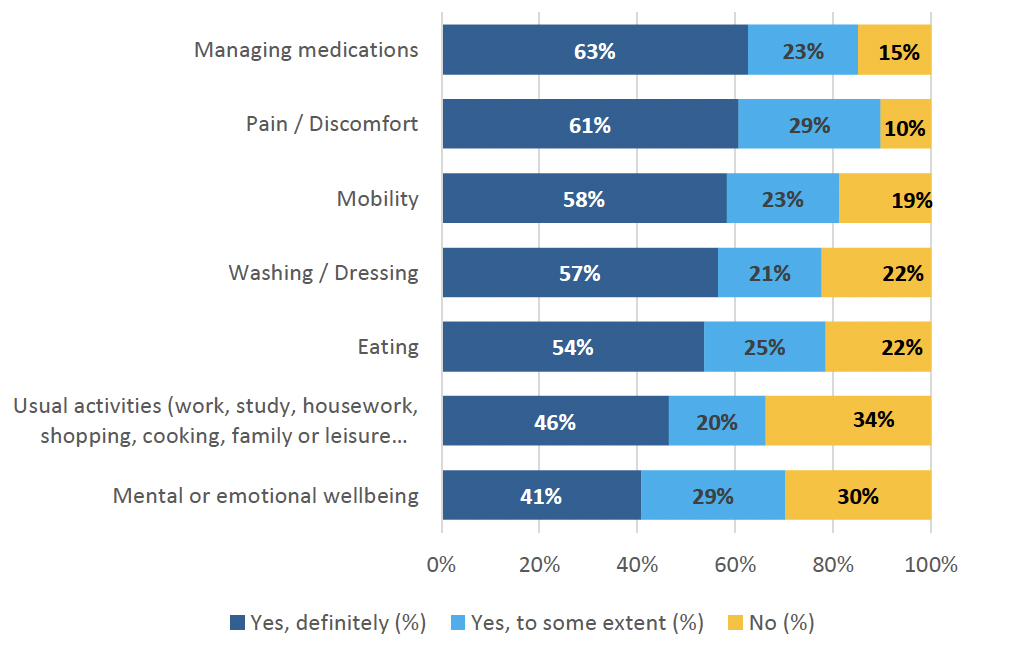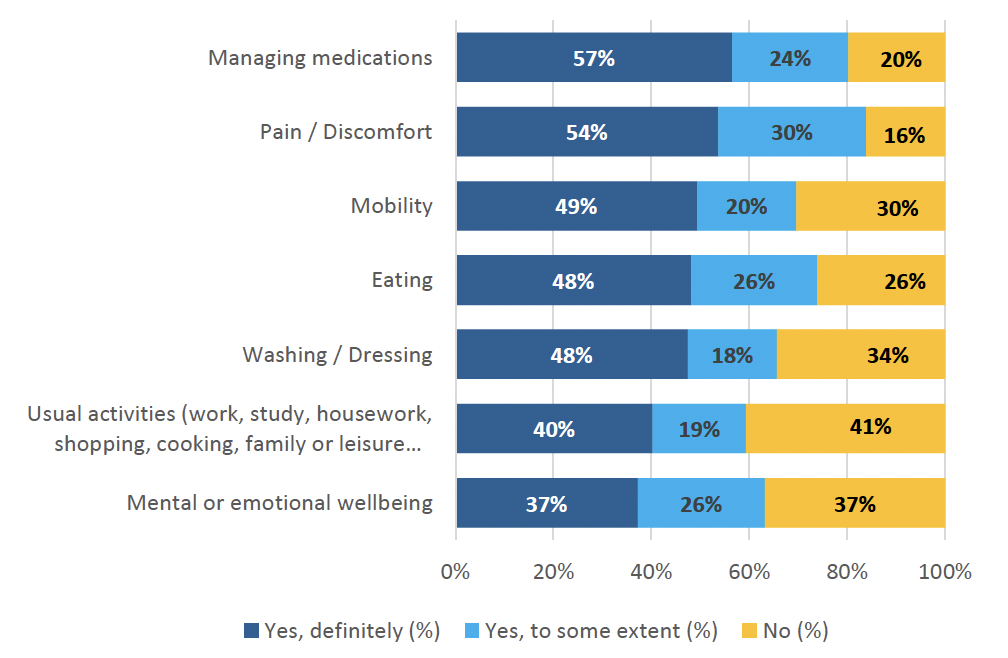Scottish Cancer Patient Experience Survey 2024: national report
The report shows the results of the Scottish Cancer Patient Experience Survey 2024.
Wider Support
Many people will need to access health and social care services, such as district nurses, home carers or physiotherapists, both during and after cancer treatment. Feeling adequately supported and cared for by these services is vital for a positive care experience.
Figure 3 and Figure 4 show how people rated care and support from health or social services received during and after cancer treatment, by kind of support.
- Rating of care and support varies for different issues.
- Respondents rated more positively care and support for pain / discomfort and managing medications, and less positively care and support for mental or emotional wellbeing and usual activities.
- The patterns above hold for care and support received both during and after cancer treatment.
- People rated all kind of support received after treatment less positively than the respective kind of care and support received during treatment.
People rated care and support for pain / discomfort and managing medications more positively than care and support for other issues, during treatment.

People rated care and support for pain / discomfort and managing medications more positively than care and support for other issues, after treatment.

The survey asked if, when people left the hospital for cancer treatment, the healthcare professionals gave their family, or someone close, all the information they needed to help care at home.
- 60% of people responded “yes, definitely”, 22% responded “yes, to some extent” and 18% responded "No”.
What people had to say about wider support:
“…The staff that cared for me were amazing l am so grateful to the staff and also the [third sector support centre] it is a fantastic place for emotional support throughout the process of having a cancer diagnosis and living with uncertainty if the cancer will return and having checks for 5 years.”
“…The emotional support was second to none. I wasn’t just a patient I was treated like a family friend.”
“To be honest the only thing I would say was to be offered some help around the house as I had no one to even make me a cup of tea so I lived on microwave food which had to be bought in advance.”
“Information relating to after-care at home could have been better. My [family member] says they felt under-informed about what to expect in terms of my continence, care requirements and general health in the immediate period following surgery.”
Contact
Email: patientexperience@gov.scot
There is a problem
Thanks for your feedback